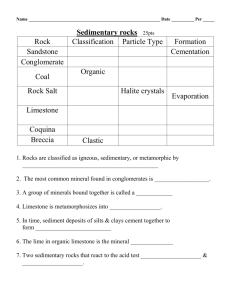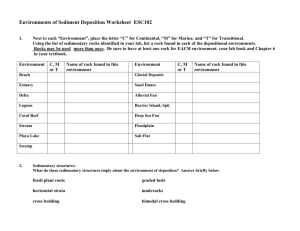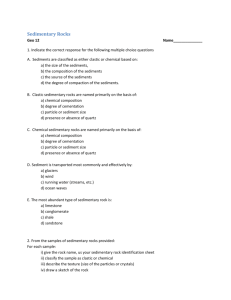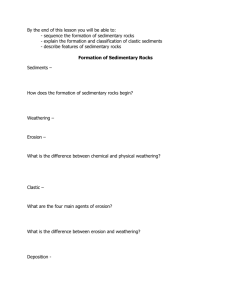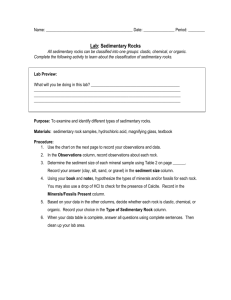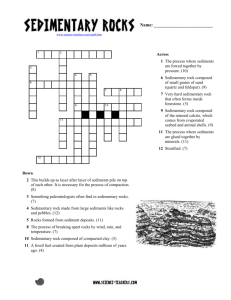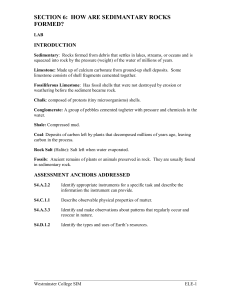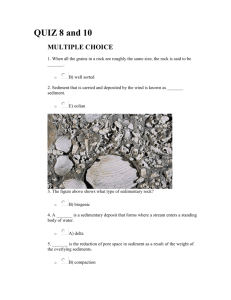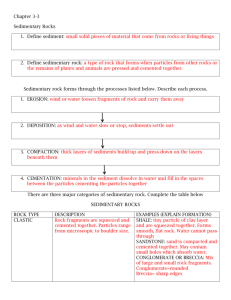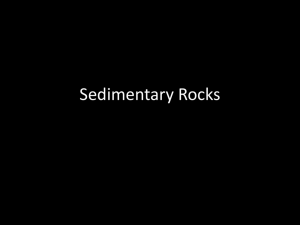Table 1 Sedimentary Rocks
advertisement
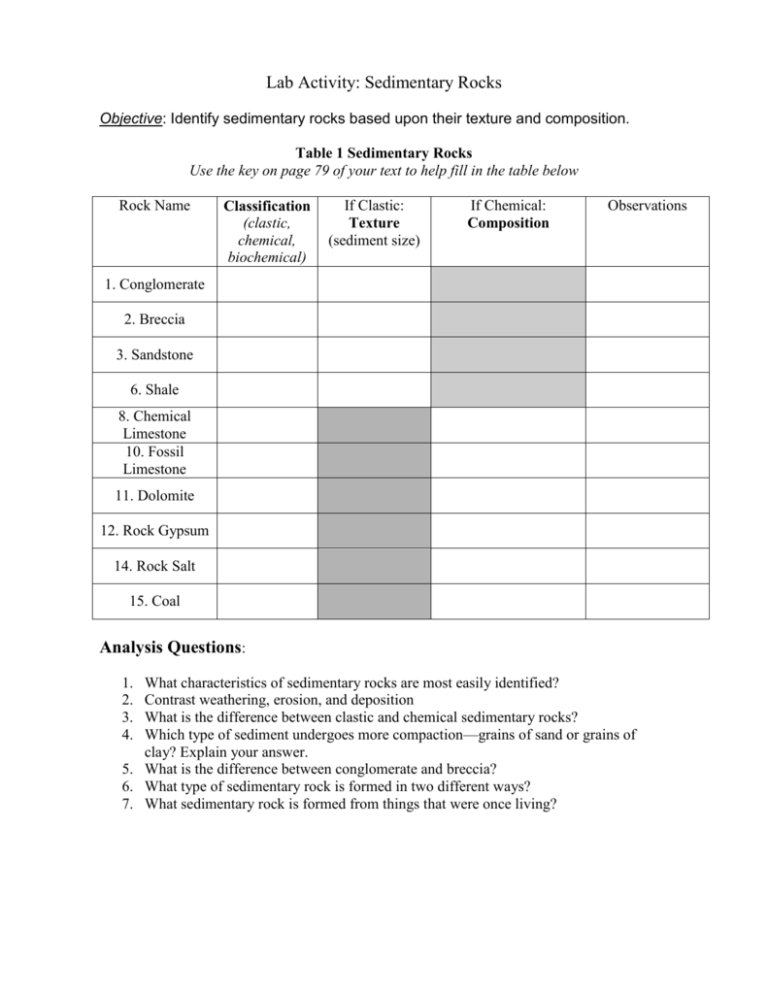
Lab Activity: Sedimentary Rocks Objective: Identify sedimentary rocks based upon their texture and composition. Table 1 Sedimentary Rocks Use the key on page 79 of your text to help fill in the table below Rock Name Classification (clastic, chemical, biochemical) If Clastic: Texture (sediment size) If Chemical: Composition Observations 1. Conglomerate 2. Breccia 3. Sandstone 6. Shale 8. Chemical Limestone 10. Fossil Limestone 11. Dolomite 12. Rock Gypsum 14. Rock Salt 15. Coal Analysis Questions: 1. 2. 3. 4. What characteristics of sedimentary rocks are most easily identified? Contrast weathering, erosion, and deposition What is the difference between clastic and chemical sedimentary rocks? Which type of sediment undergoes more compaction—grains of sand or grains of clay? Explain your answer. 5. What is the difference between conglomerate and breccia? 6. What type of sedimentary rock is formed in two different ways? 7. What sedimentary rock is formed from things that were once living?
